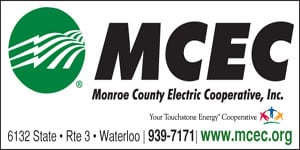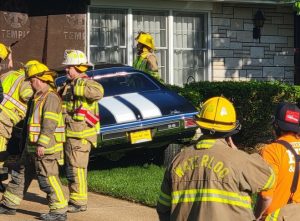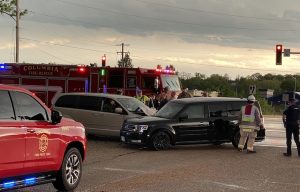Narcan hailed as lifesaver, but grey area exists
In recent news, it’s been called the “miracle drug” and a lifesaver in overdose cases. In some cases, it’s also been called a “safety net” that allows heroin users to use even more. The controversy continues to swirl around Narcan, also known as naloxone.
Narcan is a prescription medicine that reverses an opioid overdose. It can be used on a person who has overdosed on opioids like heroin or pain medication, knocking opioids out of the opioid receptors in the brain.
Narcan can help even if the opioids are taken with alcohol of other drugs, blocking the effects and reversing the overdose.
Laws in many states have changed in recent years to allow for wider distribution of Narcan.
In this area, Monroe County EMS personnel have been carrying and administering Narcan for close to 10 years.
Grenville Nash of Monroe County EMS said Narcan isn’t new to them, but he sees why there is controversy around it.
“In opioid overdoses, the respiration starts decreasing, and that’s where the problem is,” he said. “The user just stops breathing. With us, coming on scene, our indication to use (Narcan) often is seeing the drug paraphernalia laying around.”
Nash said it’s one of those things where most of the public doesn’t know about it until it hits the news for one reason or another, like recently.
“It was one of those things you could really only receive when EMS arrived or if you go to a hospital,” he said. “That’s where a lot of the controversy lies: whether or not we should be handing it out. They wonder if it encourages people to continue with drugs.”
Nash said they have been discussing whether or not police departments should be handing it out, because with that comes risks.
“If you give it too quickly, the subject can come out of (their overdose) pretty violently,” he said. “It takes away their high, and they become very angry. Once you’ve given it, they have to be monitored.”
Nash said every department has their own opinion on whether or not Narcan is beneficial.
“That’s why it’s the big conversation right now,” he said. “It has a great purpose, but the grey area right now is whether or not to hand it out.”
For local police departments, their opinions vary.
Waterloo Police Chief Jim Trantham said there is no real need for his police officers to carry Narcan at this time. He said that since Monroe County EMS can be on scene so quickly, being stationed in Waterloo, the police department sees no need to keep the medication in rotation and train officers to carry it.
Columbia Police Chief Joe Edwards, on the other hand, said his department is working toward carrying Narcan.
Columbia EMS has been carrying Narcan for more than 20 years, he said.
“I plan to have the Columbia officers carry it once I find a revenue source to purchase it,” Edwards said. “I sent Columbia EMS chief Shannon Bound to a training class so that she is certified to teach (police) officers how to properly use it.”
Edwards has also been working with the U.S. Attorney’s Office to see if it can assist his department with the Narcan purchase or negotiate a better purchasing price.
The Monroe County Sher
iff’s Department is not carrying Narcan at this time, but Sheriff Neal Rohlfing said he hopes his department can carry it in the future.
“With some of the drug-related overdoses our county has seen in the past few months, we should be prepared for them,” Rohlfing said.”
According to the Overdose Prevention Act, trained individuals are allowed to possess and administer Narcan to a person having an overdose.
According to a recent newsletter from State Sen. Dave Luechtefeld, Sen. Michael Connelly is sponsoring legislation this spring to expand a suburban Chicago program that provides emergency medical care to prevent heroin drug overdoses.
Under the proposal, school nursing personnel across the state would be allowed to administer Narcan. The new legislation would make school districts and authorized personnel immune from civil liabilities if Narcan is administered in “good faith.”
Reports of heroin addiction and deaths from overdose have been widely reported across the state in recent years. In DuPage County, law enforcement officials recorded 32 lives saved in 2014 using Narcan.
Overdose calls decrease
Monroe County Coroner Vicki Koerber said overdose calls involving illegal drugs, alcohol and over-the-counter drugs declined in 2014 from the year prior, based on figures released by Monroe County EMS and Columbia EMS.
An overdose call simply means the person required medical attention, not that someone necessarily died.
Columbia EMS handled 23 overdose-related calls in 2014, down 45 percent from 42 such calls in 2013.
Monroe County EMS handled 13 overdose calls in 2014, down 54 percent from 28 such calls in 2013.
Of the 13 calls handled by Monroe County EMS in 2014, seven were for prescription drugs, five were for heroin and one was alcohol-related, Koerber said.
“Can we attribute this decline to our recent proactive approach and awareness? I really don’t know,” Koerber said. “There’s still work to do. I want to see it at zero.”








